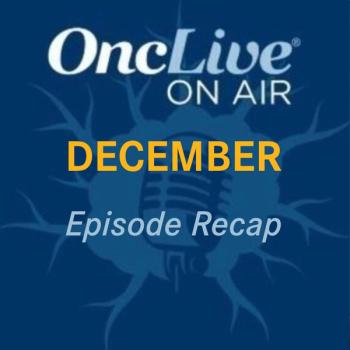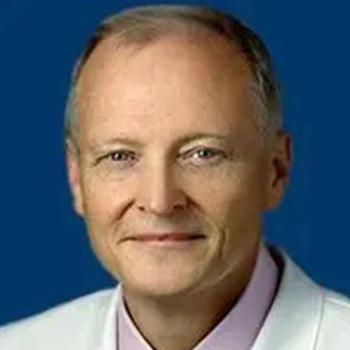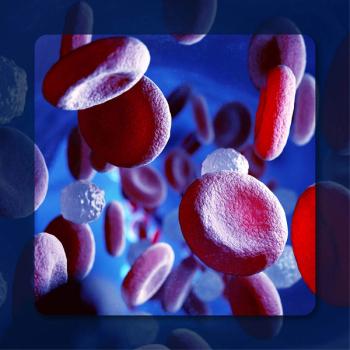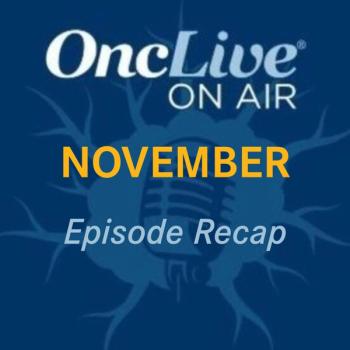
An NDA has been submitted to the FDA seeking the approval of TAR-200 for BCG-unresponsive high-risk NMIBC with CIS, with or without papillary tumors.

Your AI-Trained Oncology Knowledge Connection!


Associate Editor, OncLive
Ashling Wahner joined MJH Life Sciences in 2022. She produces OncLive's podcast, OncLive On Air, and helps ensure timely publication of news content and announcements from the FDA approval pipeline. She also attends conferences live and virtually to conduct video interviews and produce written coverage. Email: awahner@mjhlifesciences.com

An NDA has been submitted to the FDA seeking the approval of TAR-200 for BCG-unresponsive high-risk NMIBC with CIS, with or without papillary tumors.

Marlise Luskin, MD, MSCE, discusses the treatment paradigm for relapsed/refractory ALL and research seeking to integrate agents into the frontline setting

Patients with treatment-naive CLL who received the BOVen regimen had an increased likelihood of achieving uMRD levels in peripheral blood and bone marrow.

Naseema Gangat, MBBS, discusses the role of rusfertide for decreasing phlebotomy needs and the potential future for disease-modifying PV management.

The NCCN Guidelines for B-Cell Lymphomas were updated to include ctDNA testing for MRD assessment for patients with PET-positive DLBCL at end of treatment.

Naseema Gangat, MBBS, discusses clinical factors that she uses to choose the optimal JAK inhibitors for individual patients with myelofibrosis.

Frontline belzutifan plus cabozantinib elicited durable responses and was tolerable in patients with treatment-naive advanced ccRCC.

A marketing authorization application has been submitted to the EMA seeking the approval of eflornithine for patients with high-risk neuroblastoma.

The FDA has granted priority review to sunvozertinib for advanced/metastatic NSCLC with EGFR exon 20 insertion mutations after progression on chemotherapy.

In case you missed any, read a recap of the episodes of OncLive On Air that aired in December 2024.

China's NMPA has approved taletrectinib adipate capsule for the treatment of adult patients with locally advanced or metastatic ROS1-positive NSCLC.

A series of events took John L. Marshall, MD, down his path of becoming a gastrointestinal oncology leader, with a drive that has also solidified him on the patient journey and enhancing their quality of care.

Nivolumab plus ipilimumab has been approved in Europe for the frontline treatment of adult patients with MSI-H or dMMR metastatic colorectal cancer.

The FDA granted fast track designation to NX-5948 for Waldenstrom macroglobulinemia that is relapsed/refractory to at least 2 lines of therapy.

Pembrolizumab plus chemotherapy, followed by olaparib with or without bevacizumab, improved PFS in advanced ovarian cancer.

Blinatumomab plus chemotherapy significantly improved 3-year DFS rates vs chemotherapy alone in pediatric patients with standard-risk pediatric B-ALL.

Andrew Kuykendall, MD, discusses the current role of JAK inhibitors in myelofibrosis and how the use of this class of agents may evolve.

The FDA granted fast track designation to PT217 for the treatment of patients with metastatic de novo or treatment-emergent neuroendocrine prostate cancer.

Sandip P. Patel, MD, discusses the functionality of the IPS test and the potential role of IPS as a biomarker in clinical practice.

Cadonilimab/chemotherapy ± bevacizumab improved survival outcomes vs placebo in frontline persistent, recurrent, or metastatic cervical cancer.

In case you missed any, read a recap of every episode of OncLive On Air that aired in November 2024.

Peter Martin, MD, discusses the current role of BTK inhibitors in MCL and how future research may solidify the use of these agents in this disease.

Abequolixron plus docetaxel generated preliminary efficacy signals in the second- and third-line settings in recurrent advanced nonsquamous NSCLC.

Perioperative vorasidenib or ivosidenib demonstrated sustained clinical benefit in patients with predominantly non-enhancing IDH1-mutant diffuse glioma.

The FDA approved the PATHWAY HER2 (4B5) test to identify patients with HER2-positive biliary tract cancer who are eligible for treatment with zanidatamab.

A biologics license application was submitted to the FDA seeking the approval of RP1 plus nivolumab for patients with PD-1 inhibitor–exposed melanoma.

Treatment with afami-cel was associated with long-term persistence in the periphery that led to clinical benefit in patients with synovial sarcoma.

Whitney Goldsberry, MD, discusses patient characteristics and disease factors that sway the decision between available PARP inhibitors in ovarian cancer.

Hope S. Rugo, MD, discusses questions regarding CDK4/6 inhibitors and targeted therapies in HR-positive, HER2-negative advanced breast cancer.

Induction therapy with bendamustine plus obinutuzumab resulted in higher CR rates compared with historical rates of CR with BR in treatment-naive MCL.